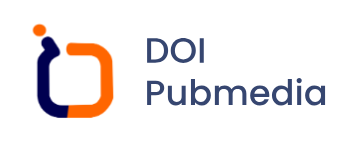Hexahelix collaboration in developing halal tourism in Indonesia
DOI:
https://doi.org/10.69812/itj.v1i1.13Keywords:
Hexahelix, Collaboration, Halal TourismAbstract
Tourism collaboration is to create a series of tourism programs or activities that are more diverse, attractive, and sustainable to attract tourists to visit an area or tourist destination on an ongoing basis. The purpose of the Hexahelix collaborative research in the development of halal tourism in Indonesia is to examine the potential for halal tourism in Indonesia and how this potential can be optimally and sustainably developed through collaboration between Government, community, academia, private sector, law and the mass media which have their respective roles. The method of using post-positivism qualitative research sees reality as a construction continuously developed through subjective experiences, so post-positivism qualitative research emphasizes in-depth interpretation and understanding related to phenomena. Logical analysis can identify errors or weaknesses in an argument or ensure that the conclusions drawn from the argument are correct and consistent. The results show that the hexahelix collaboration significantly contributes to accelerating halal tourism development in Indonesia. In this study, it was also found that the development of halal tourism in Indonesia has enormous potential as a type of tourism trending and experiencing rapid growth in Indonesia and the world. Thus, it is hoped that the development of halal tourism in Indonesia can be successful and provide greater benefits for economic development and people's welfare.
Downloads
References
Battour, M., Hakimian, F., Ismail, M., & Boğan, E. (2018). The perception of non-Muslim tourists towards halal tourism: Evidence from Turkey and Malaysia. Journal of Islamic Marketing, 9(4), 823–840. https://doi.org/10.1108/JIMA-07-2017-0072/FULL/XML
Battour, M., & Ismail, M. N. (2016). Halal tourism: Concepts, practises, challenges and future. Tourism Management Perspectives, 19, 150–154. https://doi.org/10.1016/J.TMP.2015.12.008
Battour, M. M., Ismail, M. N., & Battor, M. (2010). Toward a halal tourism market. Tourism Analysis, 15(4), 461–470. https://doi.org/10.3727/108354210X12864727453304
Battour, M., Salaheldeen, M., & Mady, K. (2022). Halal tourism: exploring innovative marketing opportunities for entrepreneurs. Journal of Islamic Marketing, 13(4), 887–897. https://doi.org/10.1108/JIMA-06-2020-0191/FULL/XML
Biancone, P. Pietro, Secinaro, S., Radwan, M., & Kamal, M. (2019). Halal tourism: An opportunity for the global tourism industry. Tourism Analysis, 24(3), 395–404. https://doi.org/10.3727/108354219X15511865533112
Boğan, E., & Sarıışık, M. (2019). Halal tourism: conceptual and practical challenges. Journal of Islamic Marketing, 10(1), 87–96. https://doi.org/10.1108/JIMA-06-2017-0066/FULL/XML
Carboni, M., & Idrissi Janati, M. (2016). Halal tourism de facto: A case from Fez. Tourism Management Perspectives, 19, 155–159. https://doi.org/10.1016/J.TMP.2015.12.007
Clark, A. M. (1998). The qualitative-quantitative debate: moving from positivism and confrontation to post-positivism and reconciliation. Journal of Advanced Nursing, 27(6), 1242–1249. https://doi.org/10.1046/J.1365-2648.1998.00651.X
Creswell, J. W. (2003). A Framework for Design. In Research Design: Qualitative, Quantitative, and Mixed Method, Approaches (pp. 9–11). Sage.
Dwiyanto, A. (2017). Manajemen Pelayanan Publik: Peduli Inklusif dan Kolaborasi. In UGM Press.
El-Gohary, H. (2016). Halal tourism, is it really Halal? Tourism Management Perspectives, 19, 124–130. https://doi.org/10.1016/J.TMP.2015.12.013
Groff, R. (2004). Critical realism, post-positivism, and the possibility of knowledge. In Volume 11, Dari Routledge Studies in Critical Realism. Routledge.
Han, H., Al-Ansi, A., Koseoglu, M. A., Lin, P. M. C., Park, J., Yu, J., & Kim, W. (2019). Halal tourism: travel motivators and customer retention. Journal of Travel & Tourism Marketing, 36(9), 1012–1024. https://doi.org/10.1080/10548408.2019.1683483
Harahsheh, S., Haddad, R., & Alshorman, M. (2020). Implications of marketing Jordan as a Halal tourism destination. Journal of Islamic Marketing, 11(1), 97–116. https://doi.org/10.1108/JIMA-02-2018-0036/FULL/XML
Haryono, N. (2012). Jejaring untuk membangun kolaborasi sektor publik. Jurnal Jejaring Administrasi Publik, 1(4), 48.
Henderson, J. C. (2016). Halal food, certification and halal tourism: Insights from Malaysia and Singapore. Tourism Management Perspectives, 19, 160–164. https://doi.org/10.1016/J.TMP.2015.12.006
Hidayaturrahman, M., Haris, R. A., Hidayat, I., & Armaji, P. (2021). Pengembangan Pembangunan Pariwisata di Kabupaten Sumenep Perspektif Hexa Helix. Karaton: Jurnal Pembangunan Sumenep, 1(1), 131–146. http://bappeda.sumenepkab.go.id/jurnal/index.php/karaton/article/view/14
Junaidi, J. (2020). Halal-friendly tourism and factors influencing halal tourism. Management Science Letters, 10(8), 1755–1762. https://doi.org/10.5267/J.MSL.2020.1.004
Lathrop, D., & Ruma, L. (2010). Open Government: Collaboration, Transparency, and Participation in Practice. In Open Government: Transparency, collaboration, and participation in practice. O'Reilly Media.
Mohsin, A., Ramli, N., & Alkhulayfi, B. A. (2016). Halal tourism: Emerging opportunities. Tourism Management Perspectives, 19, 137–143. https://doi.org/10.1016/J.TMP.2015.12.010
Moshin, A., Brochado, A., & Rodrigues, H. (2020). Halal tourism is travelling fast: Community perceptions and implications. Journal of Destination Marketing & Management, 18, 100503. https://doi.org/10.1016/J.JDMM.2020.100503
Musfiroh, A., Mugiyati, M., & Iman, N. K. A. (2021). Strategies to Improve Halal Tourism in Indonesia During The Pandemic Covid-19. Jurnal Ilmiah Ekonomi Islam, 7(2), 1048–1052. https://doi.org/10.29040/JIEI.V7I2.2533
Pamukcu, H., & Sariisik, M. (2021). Suggestions for standardization of halal tourism in the hospitality industry. Journal of Islamic Marketing, 12(2), 389–407. https://doi.org/10.1108/JIMA-04-2019-0078/FULL/XML
Prayag, G. (2020). Halal tourism: looking into the future through the past. Tourism Recreation Research, 45(4), 557–559. https://doi.org/10.1080/02508281.2020.1762044
Rachmiatie, A., Fitria, R., Suryadi, K., & Ceha, R. (2020). Strategi komunikasi pariwisata halal studi kasus implementasi halal hotel di Indonesia dan Thailand. Jurnal Ekonomi Dan Keuangan Syariah, 4(1), 55–47. https://doi.org/10.29313/amwaluna.v4i1.5256
Ratnasari, R. T. (2020). Halal Tourism Based on Value Creation. Al-Uqud : Journal of Islamic Economics, 4(2), 268–284. https://doi.org/10.26740/AL-UQUD.V4N2.P268-284
Ratnasari, R. T., Gunawan, S., Mawardi, I., & Kirana, K. C. (2020). Emotional experience on a behavioural intention for halal tourism. Journal of Islamic Marketing, 12(4), 864–881. https://doi.org/10.1108/JIMA-12-2019-0256/FULL/XML
Rojabi, S. H., Kurniansah, R., Budiatiningsih, M., Hulfa, I., Minanda, H., & Ulya, B. N. (2023). Potensi Pengembangan Pariwisata Halal di Pulau Maringkik. ALEXANDRIA (Journal of Economics, Business, & Entrepreneurship), 4(1), 33–37. https://doi.org/10.29303/ALEXANDRIA.V4I1.446
Scott, R. J., & Boyd, R. (2020). Determined to succeed: Can goal commitment sustain interagency collaboration? Public Policy and Administration, 095207672090500. https://doi.org/10.1177/0952076720905002
Suhartanto, D., Dean, D., Wibisono, N., Astor, Y., Muflih, M., Kartikasari, A., Sutrisno, R., & Hardiyanto, N. (2020). Tourist experience in Halal tourism: what leads to loyalty? Current Issues in Tourism, 24(14), 1976–1990. https://doi.org/10.1080/13683500.2020.1813092
Suhartanto, D., Gan, C., Andrianto, T., Ismail, T. A. T., & Wibisono, N. (2021). Holistic tourist experience in halal tourism evidence from Indonesian domestic tourists. Tourism Management Perspectives, 40, 100884. https://doi.org/10.1016/J.TMP.2021.100884
Talib, M. S. A., Hamid, A. B. A., Zulfakar, M. H., & Jeeva, A. S. (2014). Halal logistics PEST analysis : The Malaysia perspective. Asian Social Science, 10(14), 119–131. https://doi.org/10.5539/ass.v10n14p119
Vargas-Sánchez, A., & Moral-Moral, M. (2019). Halal tourism: state of the art. Tourism Review, 74(3), 385–399. https://doi.org/10.1108/TR-01-2018-0015/FULL/XML
Vargas-Sánchez, A., & Moral-Moral, M. (2020). Halal tourism: literature review and experts' view. Journal of Islamic Marketing, 11(3), 549–569. https://doi.org/10.1108/JIMA-04-2017-0039/FULL/XML
Widagdyo, K. G. (2015). Analisis pasar pariwisata halal Indonesia. The Journal of Tauhidinomics, 1(1), 73–80. https://doi.org/10.15408/thd.v1i1.3325
Widhasti, G. B., Damayanti, C., & Sardjono, H. S. (2017). Diplomasi publik Pemerintah Republik Indonesia melalui pariwisata halal. Solidaritas Jurnal Ilmu-Ilmu Sosial, 1(1), 1–13. https://ejurnal.unisri.ac.id/index.php/sldrts/article/view/1956
Downloads
Published
How to Cite
Issue
Section
License
Copyright (c) 2024 Yudithia Yudithia, Ilham Sentosa, Eiad Yafi

This work is licensed under a Creative Commons Attribution-ShareAlike 4.0 International License.
You are free to:
- Share — copy and redistribute the material in any medium or format for any purpose, even commercially.
- Adapt — remix, transform, and build upon the material for any purpose, even commercially.
- The licensor cannot revoke these freedoms as long as you follow the license terms.
Under the following terms:
- Attribution — You must give appropriate credit, provide a link to the license, and indicate if changes were made . You may do so in any reasonable manner, but not in any way that suggests the licensor endorses you or your use.
- ShareAlike — If you remix, transform, or build upon the material, you must distribute your contributions under the same license as the original.
- No additional restrictions — You may not apply legal terms or technological measures that legally restrict others from doing anything the license permits.















